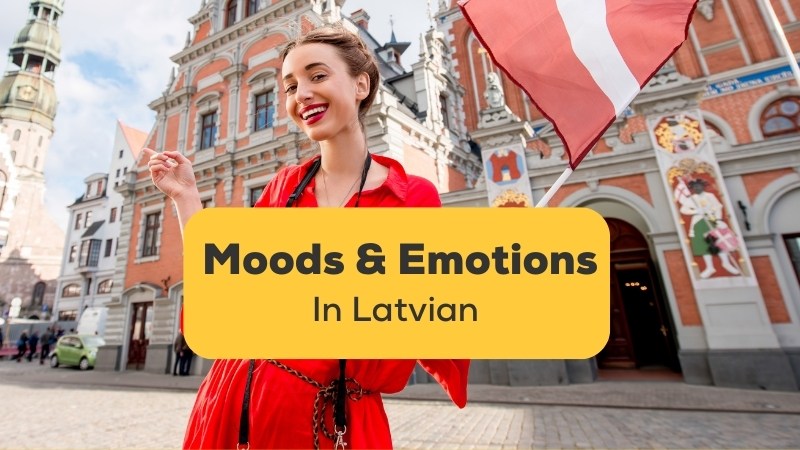Want to know how to express your deepest emotions in Latvian? Then this article is just perfect for you! Read it until the end, and you’ll learn all about this sentimental side of Latvia!
Having certain feelings and emotions is what makes us human. Our decisions every day are influenced by not only our mood but by what we are feeling at the time. It is perfectly normal in a day to be both angry and super excited, it all depends on our experiences, our surroundings, and who interacts with us.
I’m a particularly emotional guy, and when I travel, I go through every possible emotion you can think of- I get excited with a sunset, angry when my order comes wrong, grateful that I’m able to explore the globe, or nervous when things don’t go as planned. It is an emotional rollercoaster that I sometimes feel the need to express, and sometimes that needs to be in the native language to whom I’m expressing it. Knowing how to express some emotions in Latvian is fundamental if you want to embrace yourself in the Latvian culture and connect with the locals, make friends and express what you feel for them.
I have the most simple of examples for you, imagine you haven’t seen your Latvian friend for ages, and finally, you’re able to go visit him in Riga, you get a look at him, and you really want to tell him how happy you are to see him again and how excited you are for the following days! Ok, I’ll give you that, he can speak English, but how much nicer would it be to say it in his native language? Tell him how happy you are in Latvian and see how his eyes light up with pride for his friend that is learning his native language!
Actually, Latvia’s population is not the happiest in the world: according to a study made in 2017, Latvia is the 54th happiest country of the 155 countries surveyed. In the European Union, Latvia is actually the 3rd saddest country. What better reason to improve our knowledge about emotions in Latvian than to try and influence the younger generation to become happier?
In this article, I’m going to teach you how to express your whole emotional range in Latvian so that the next time you end up in a hotel in Latvia with horrible service, you can tell them exactly what you’re feeling!
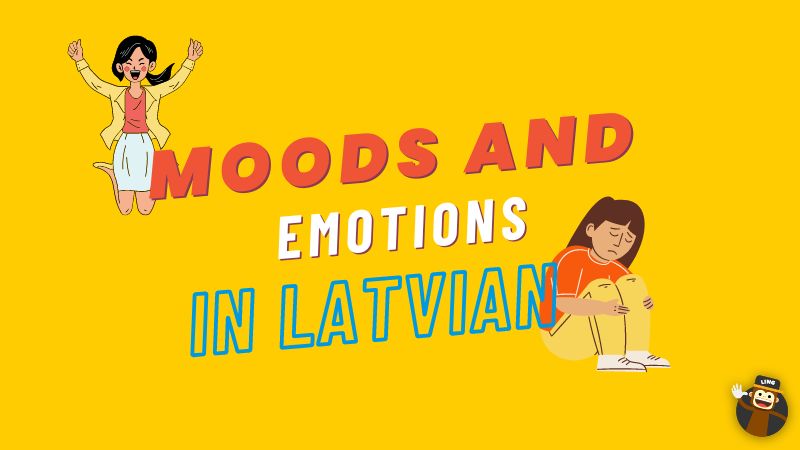
How To Say The Word Moods In Latvian
The mood is the state of a person that predisposes their actions and how they face the world through their emotions and feelings. It is also described as our emotional rhythm, which is less intense than emotions but is deeply influenced by it. The Latvian word for “Mood” is garastāvoklis.
How To Say Feelings And Emotions In Latvian
In other way, feelings and emotions are what drive our day-to-day actions. They influence our mood, having the power to either aggravate a bad mood or take you out of it. The same can happen with a good mood, good feelings and emotions may lead you to a state of excitement or completely remove your good mood. The words for “Feelings” and “Emotions” are jūtām and emocijas.
Let’s explore a few emotions and learn how to say them in Latvian.

Happyness – Laime
This is the first feeling we desire and wish everyone else to have. If you’ve just had a great day and just want to say that you’re happy, use the word laimīgs (happy) to express that feeling! Check the table below to learn some other ways to say how happy you are!
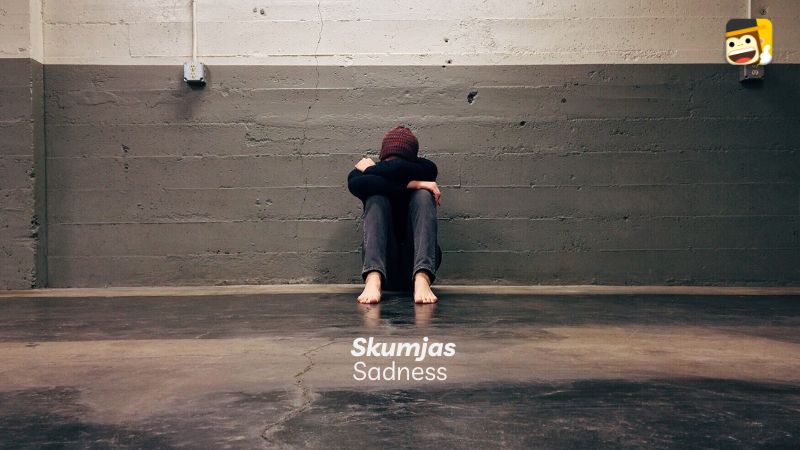
Sadness – Skumjas
On the opposite side of the spectrum from Happiness is what Latvians call Skumjas. Traveling to a new country is mostly a happy occasion, however, either because you’ve just had a bad experience, got some bad treatment from some locals, or just feel homesick, it is normal to feel a bit blue sometimes. If you ever feel skumji (sad) during your trip, look on the bright side: how would you know when you’re happy if you’ve never been sad?
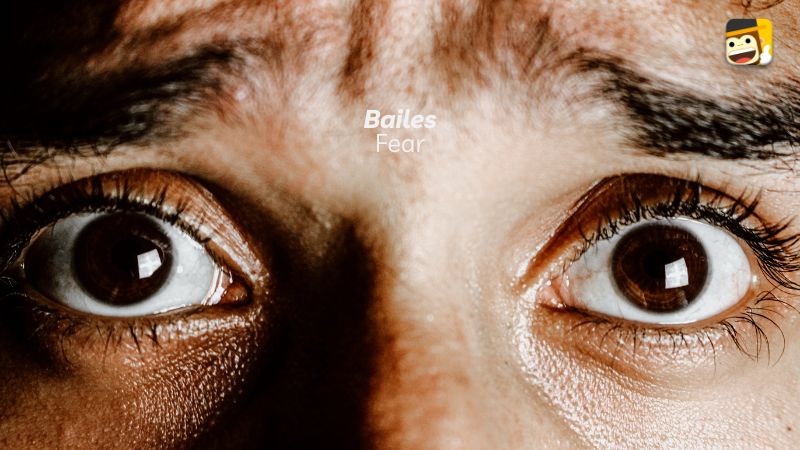
Fear – Bailes
The biggest amount of fear, or bailes, you’ll feel in Latvia will be the fear of missing your train, fear of not being able to visit everything you wanted or fear of meeting your new boss in Riga. It is a normal feeling we all face when we are put in circumstances that are new or unexpected. It is very normal to feel nobijies (scared) when you’ve just arrived in a new country or culture.

Anger – Dusmas
In a new country, it is very natural to face some situations to which you are not used and that you may actually dislike. In these situations, it is completely normal to feel dusmas (anger) flowing through your bones.

Shame – Kauns / Guilt – Vaina
Aligned with fear, feeling Kauns (shame) or vaina (guilt), although not so common, can also be a feeling you get while visiting a new country. You’re probably used to doing some actions in a way that in a new country may be done in a different way. Once you realize you’re already doing it and it is too late, you feel apkaunots (ashamed).
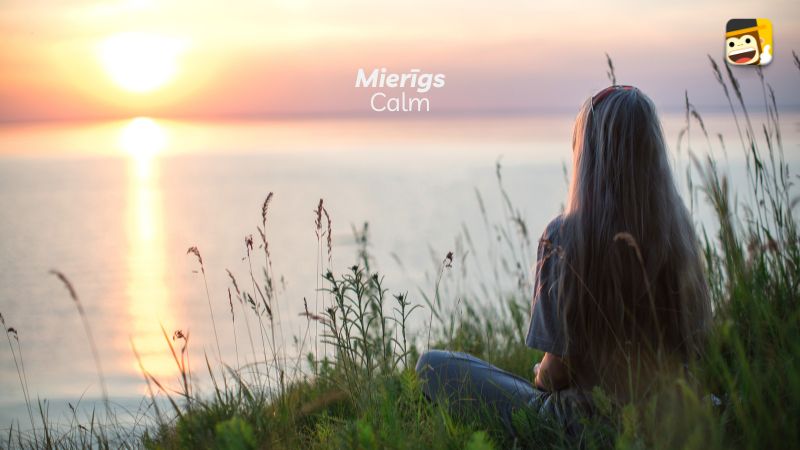
Calm – Mierīgs
Ending on a bright note, there’s no better feeling than laying your head on your pillow after a full day exploring a new country. This is when you feel both happy and Mierīgs (calm). You feel like a job well done, and now is the time to recover for a full-packed day tomorrow!
| Feelings | Latvian | Pronunciation |
| Calm | Mierīgs | |
| Caring | Rūpes | |
| Loving | Mīlošs | |
| Peaceful | Mierīgs | |
| Reflective | Atstarojošs | |
| Serene | Rāms | |
| Vulnerable | Neaizsargāti | |
| Warm | Silts | |
| In love | Iemīlējies |
Example Phrases To Express Your Feelings In Latvian
Time for practice: let’s use some of these words to see some example phrases where we talk about our emotions.
Start Learning Latvian With Ling
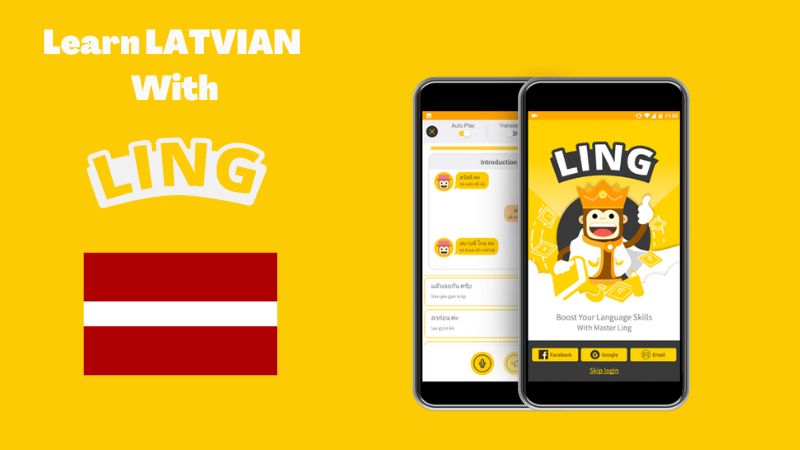
If you feel very happy and excited about what you just learned, it is the first sign you should continue to learn the Latvian language! In that case, you should really check out Ling App.
Ling App is a language learning that guarantees to help you learn Latvian in a very effective and fun way. Forget about big and boring textbooks, Ling App will teach you grammar, vocabulary, and pronunciation through games, puzzles, quizzes, and real-life examples.
Learning Latvian was never easier, with only 15 minutes per day, you can become fluent in this language faster than you can book a ticket to Latvia!
Download the app from App Store and Play Store and start learning today!
